D-Day Dice Pocket Review
- 7 minutes read - 1286 wordsD-Day Dice Pocket is one of the games I backed on Kickstarter. The Kickstarter campaign was actually for D-Day Dice: 2nd Edition and D-Day Dice Pocket came in the package on higher pledge levels. I’m yet to try the main D-Day Dice game, but judging from the experience while playing its smaller brother, it might actually be quite fun.
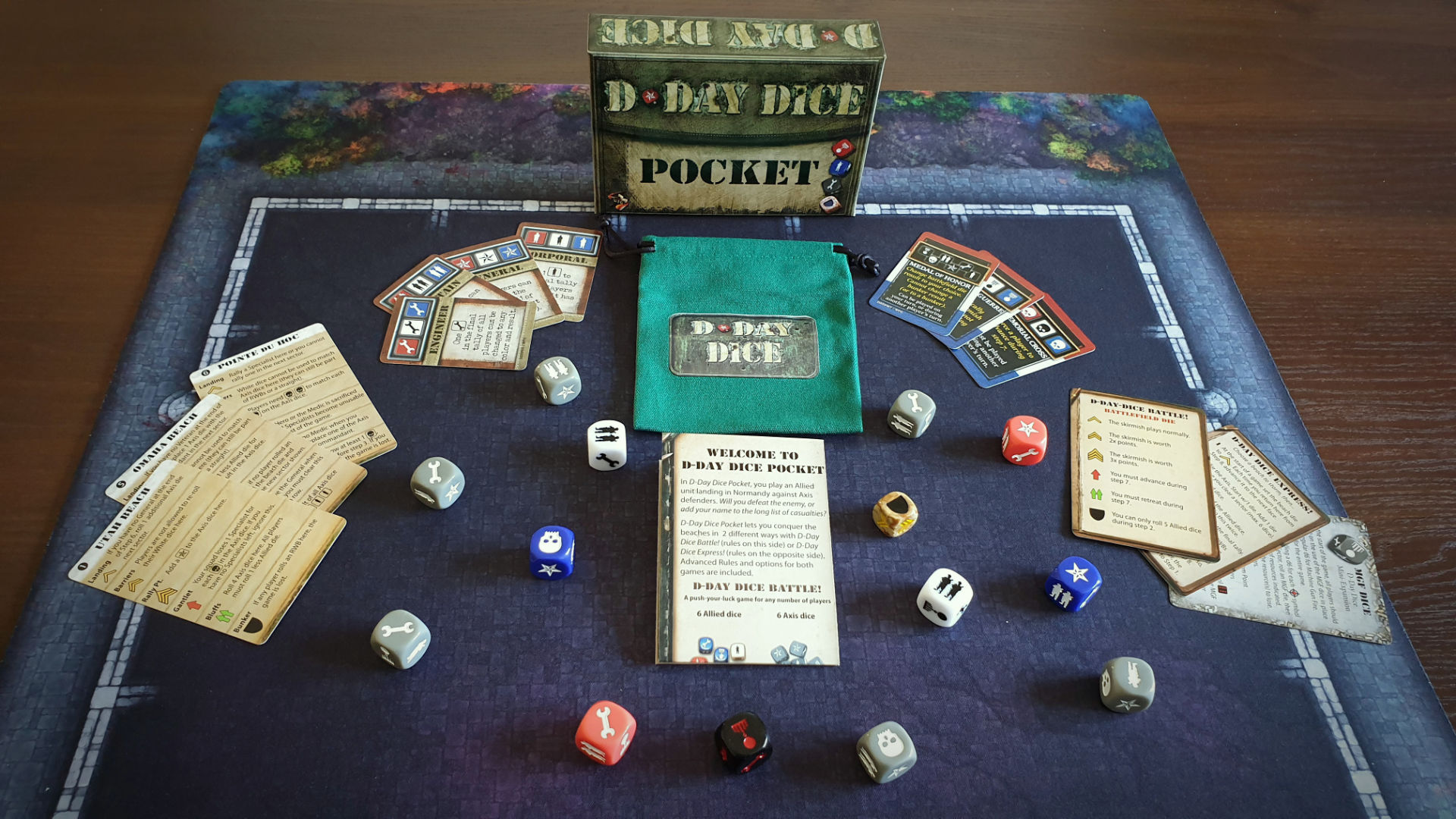
D-Day Dice Pocket actually contains two games in one small package - D-Day Dice Battle! and D-Day Dice Express! They are both really easy to learn, but quite different to play. There is only one page of rules to read and they are really fast on the table. The goal of both is to conquer the beaches by advancing through a number of steps. I was playing them solo.
D-Day Dice Battle!
This is a push-your-luck game for any number of players. Apparently, “any” doesn’t mean 1 player, but that can be easily fixed by defining a house rule for victory.
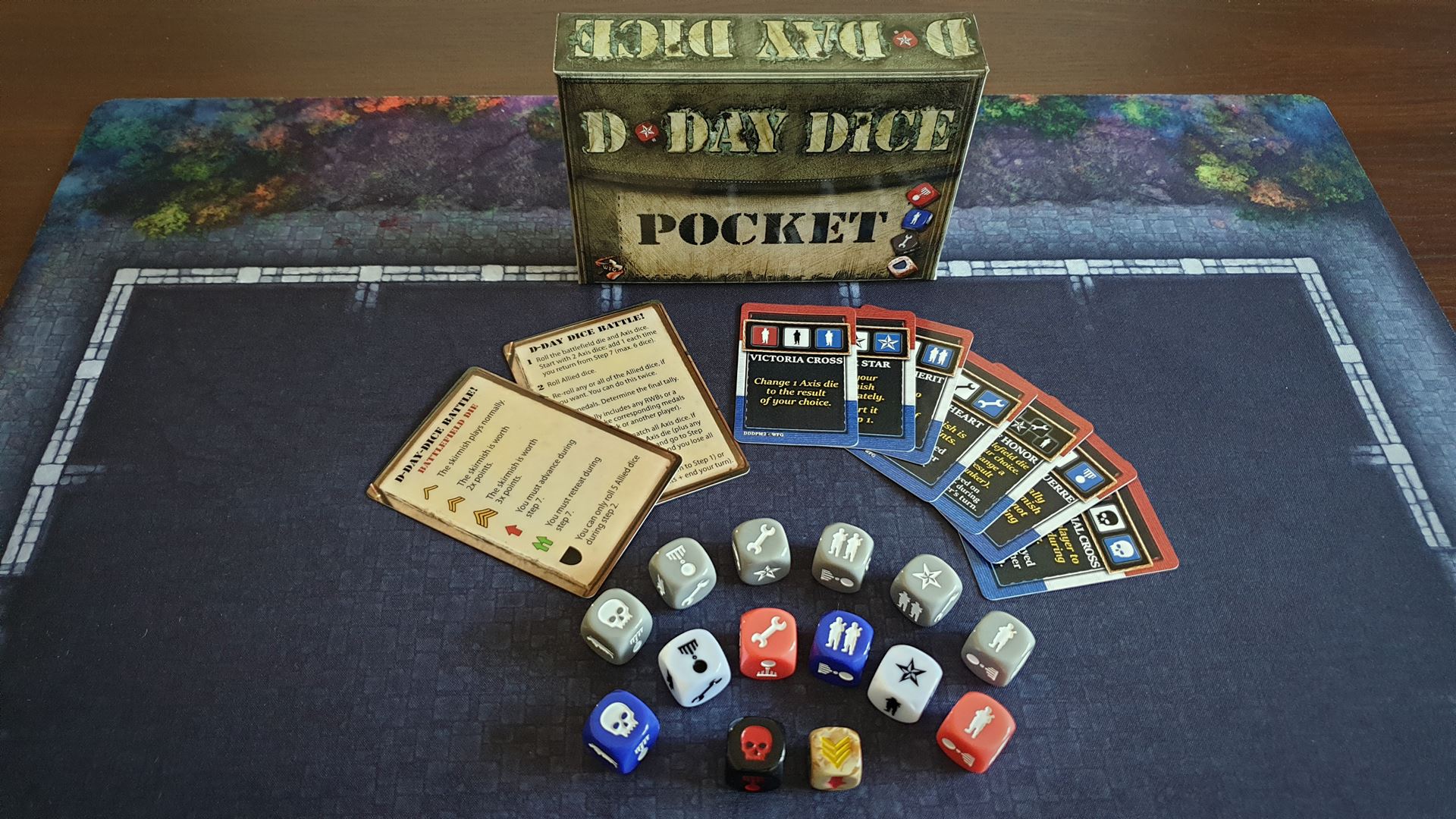
The rules are simple. Each player’s turn is a skirmish between Axis (gray dice) and Allies (red, white, and blue dice). The player first rolls an increasing number of Axis dice (up to 6), and then the Allies dice. Two re-rolls of Allies dice are possible. To win the skirmish, one must cancel all the Axis dice with Allies dice, by matching symbols one by one. If skirmish was won, the player can add the score (number of dice matched), to her final tally. The first player to come to 30 points triggers end game round and the player with most points is the winner.
Now if that was all to it, it would be a bit boring. Luckily, we also have a Battlefield die, which is rolled to determine how the terrain will affect the skirmish. It can change the number of points to score, the number of dice played, etc.
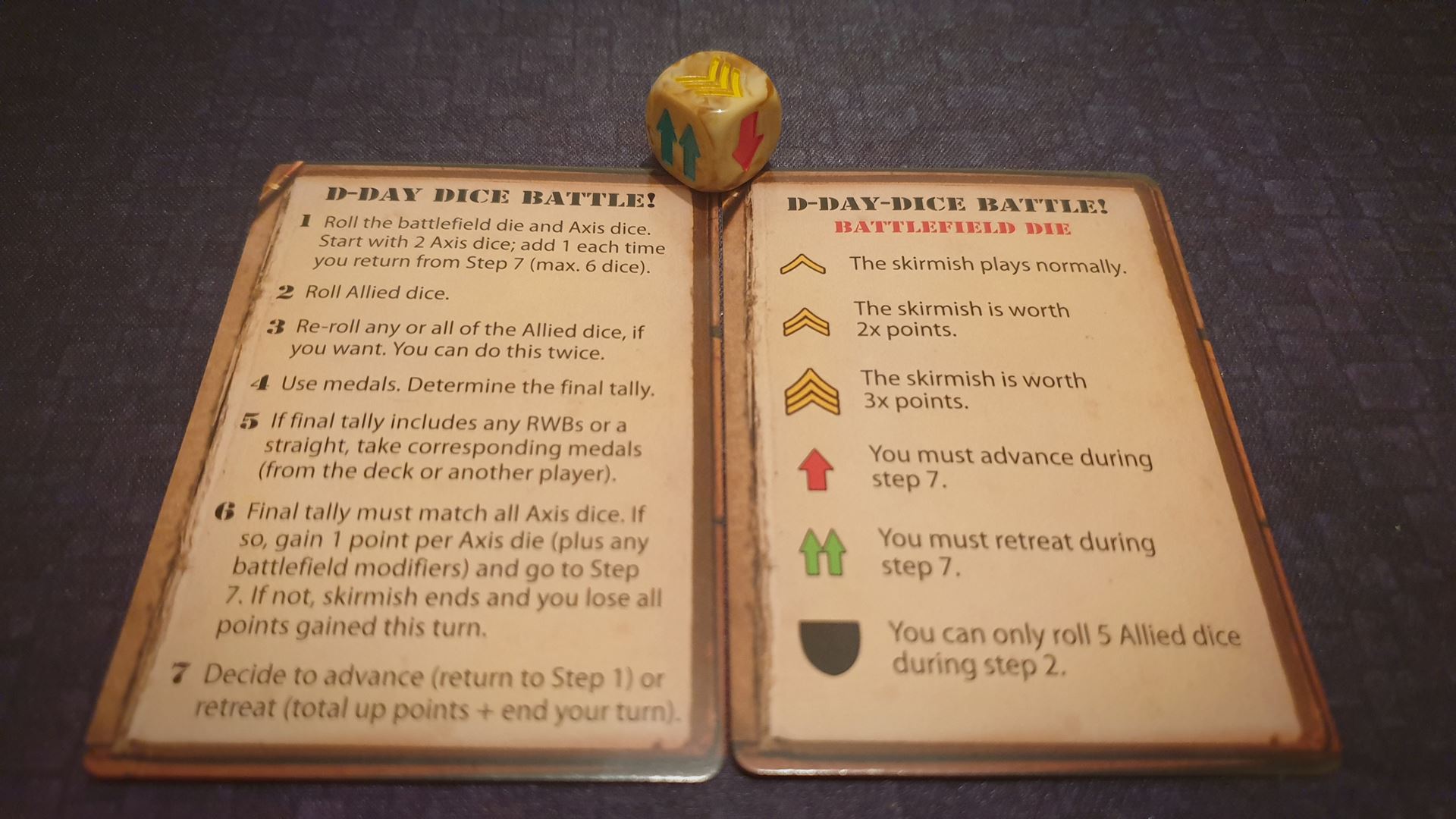
The second thing that can help the player are Medals. If the same symbol is rolled on red, white, and blue dice, you get RWB (red-white-blue) and you get a matching medal for that. There is also a medal to win if you roll straight - different symbols on all 6 allies dice. Medals have different effects that can help you during the roll phase or during another player turn - with a bit of take-that mechanic. They can also bring you additional 5 points at the end of the game if you keep them.
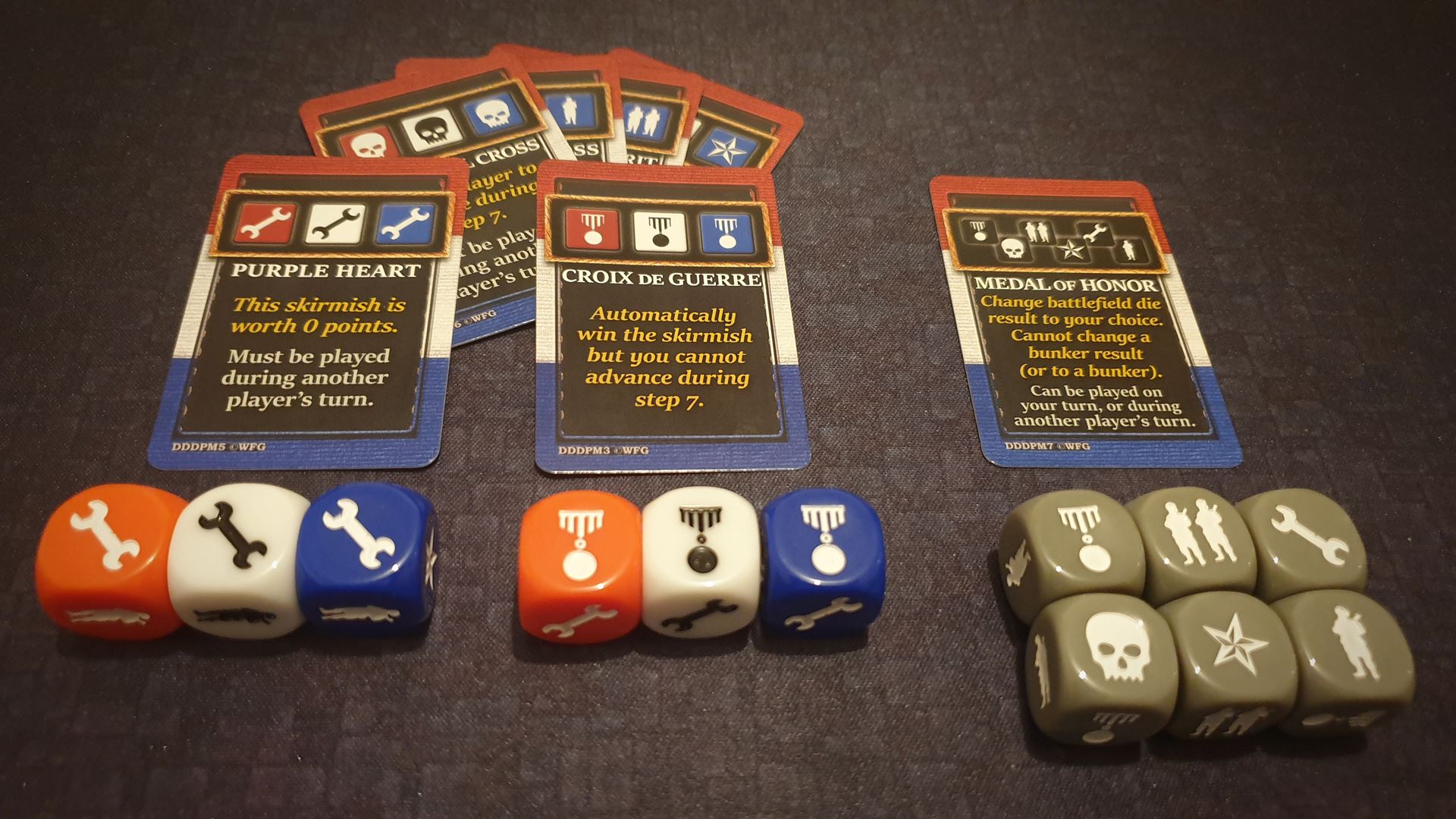
My thoughts
The first problem I had with Battle! is that there are no rules for solo play. The first player to get to 30 points - is not usable when playing solo. However, once you add few house rules it becomes quite fun to play. I.e. you can limit the number of turns to 10, and then chase your high score. Or you could set the score limit, and try to hit it with the least amount of rounds. Another problem is that the effects of some medals simple don’t make sense while playing solo. Those are medals that affect other players. But, they are still worth 5 points at the end of the game.
The first several times I have played Battle!, I didn’t earn a lot of medals and it took a lot of turns to get to some predefined score. The problem was that I have played Express! before Battle!. In Express!, you can die and lose the game. In Battle!, it’s perfectly OK to lose the round/skirmish. You can just focus on getting the medal, and ignoring the Axis dice in the turn. The medals will help you on later turns.
So, the solo experience of Battle! is not that good. I will try to play with someone and maybe update this review after. I guess it can be pretty dynamic with 2 or 3 players, with player interaction and racing to get the high score. However, I doubt it will work with the higher number of players (there’s no upper limit to the number of players), as there is only one set of dice and players need to wait for their turn. But, the skirmish rounds are quite fast, so it might not be the problem.
D-Day Dice Express!
Unlike Battle!, Express! is a cooperative game for 1-4 players, meaning it has solo rules.
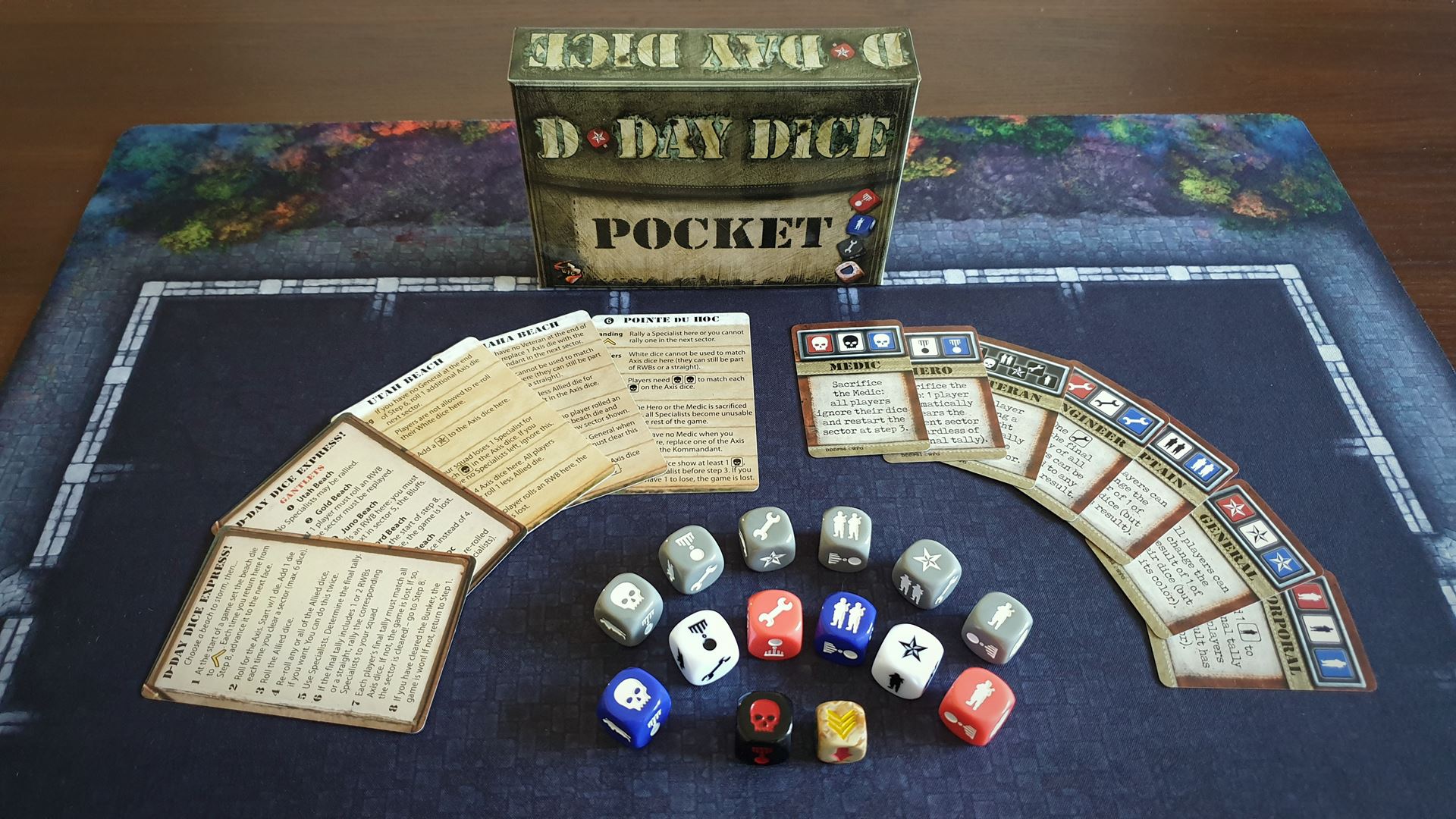
Again, the rules are pretty simple and easy to grasp. You chose a beach to conquer during your game and then play 6 sectors on that beach, basically doing a skirmish on each sector. At the start of the game, one player rolls Axis dice with a number of dice equals to the sector number. Then each player, in its round, must roll Allies dice and match all Axis symbols. Two re-rolls are possible. If all symbols aren’t matched, the game is lost. Players must complete all 6 sectors to win.
In Express!, we also have RWB (red-white-blue) rolls and straights. When rolling any of those, you rally a specialist to your squad. Specialists can be used to modify your dice rolls or conditions for winning a sector. There are specialists adding a permanent ability to rolls of all players and specialists that need to be sacrificed for an effect to trigger. Specialists can also be sacrificed as a sector condition.
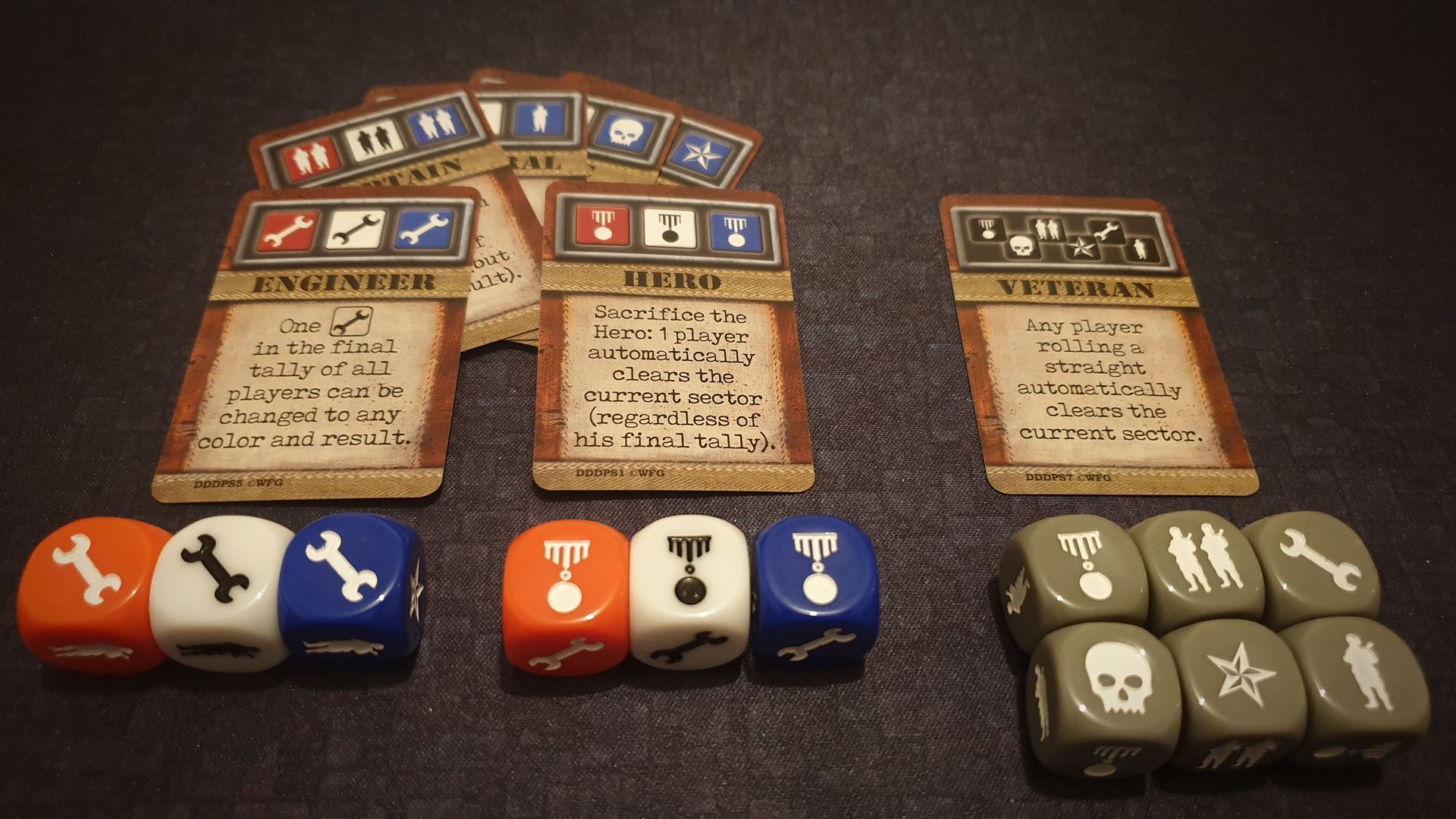
Another important thing in Express! are beaches. There are six of them and sector 4, called Gantlet, is special - it has a different effect on all beaches. As an alternative rule, you can also use beach cards, where each sector is unique for all beaches. It brings a lot of variety and replayability to the game.
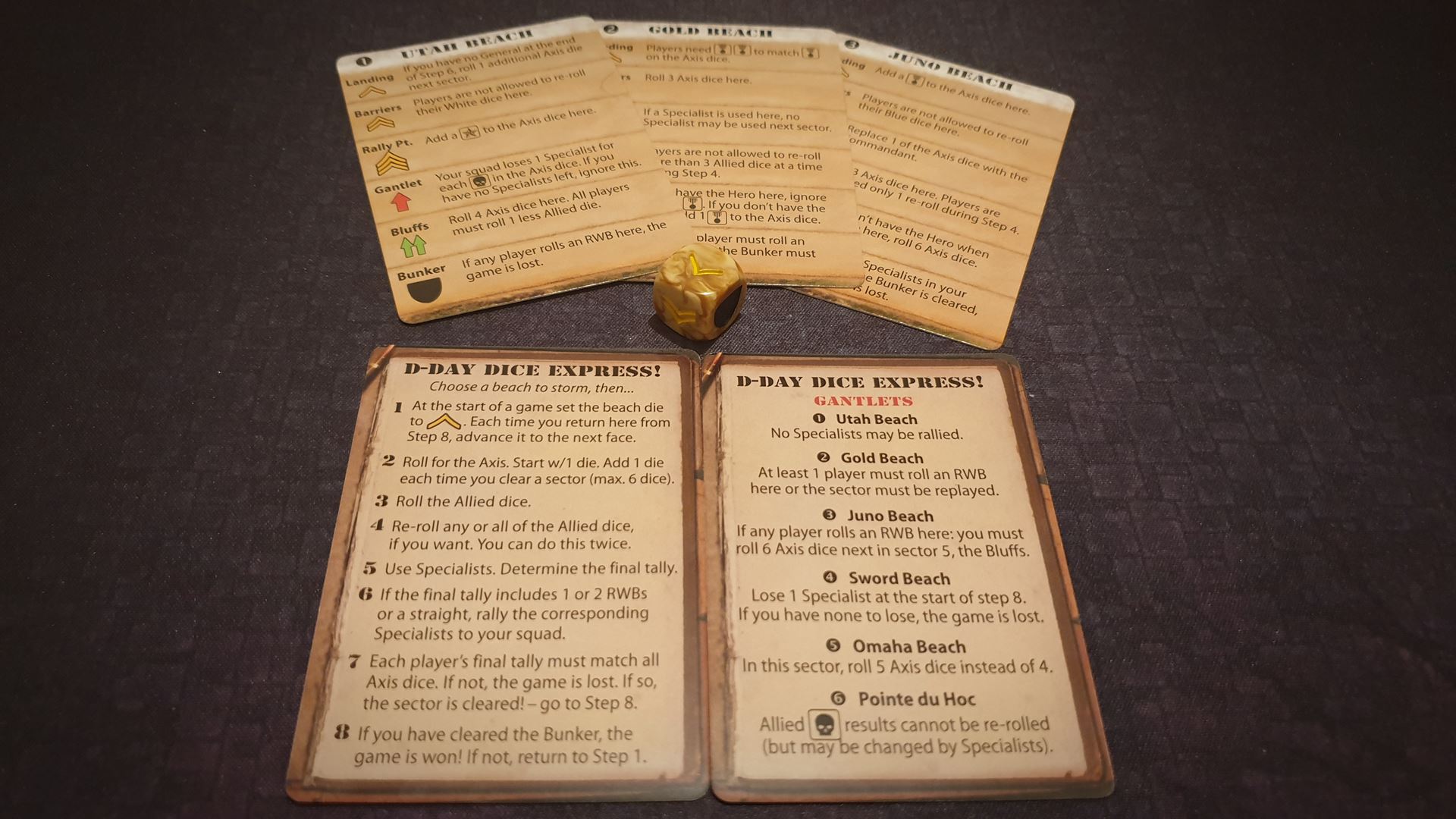
My thoughts
For solo play, I liked Express! game a lot more than Battle!. It’s a lot faster. You can play it in up to 10 minutes. There is also a lot more to it, thanks to beaches and beach cards. All the games I have played, I used beach cards and they are really really cool. Some beaches are harder than others, giving you a proper challenge.
One problem I had with Express! is with forgetting the rule for a specific beach section. I.e. on Juno beach, I was constantly forgetting that blue dice cannot be re-rolled during section two, and was quitting and restarting the game because of that. But, that’s probably due to my focus, or a lack of it.
I’m not sure how this game will play with 2-4 players, but I’m assuming that it won’t be as fun as Battle! - I still need to confirm that.
Conclusion
D-Day Dice Pocket is a very good game that delivers a lot of fun in a really small package. There’s even a small pouch that fits all the dice, cards and rulebook, and can be easily carried in a pocket (D-Day Dice Pocket, get it? :)).
Both included games are fun as a solo experience and, I assume, as a multiplayer experience too. There are alternative and advanced rules for both, which increases their replayability. Of course, the replayability cannot be that great, as it’s a very small game. At least it has a better theme than Yamb (Yahtzee) :).
At the time of writing, D-Day Dice Pocket has a score of 6.2 on BGG. From my solo play, I would give D-Day Dice Battle! 5.5 and D-Day Dice Express! 7.5. My final, overall score for D-Day Dice Pocket is 7. It might change once I try multiplayer.
Finally, I believe that this D-Dice Pocket is a very good filler game. A big plus is a table presence or a lack of it, as it can easily be played on the desk of any size (i.e. work desk) if you protect the dice from falling.
Thanks for reading!